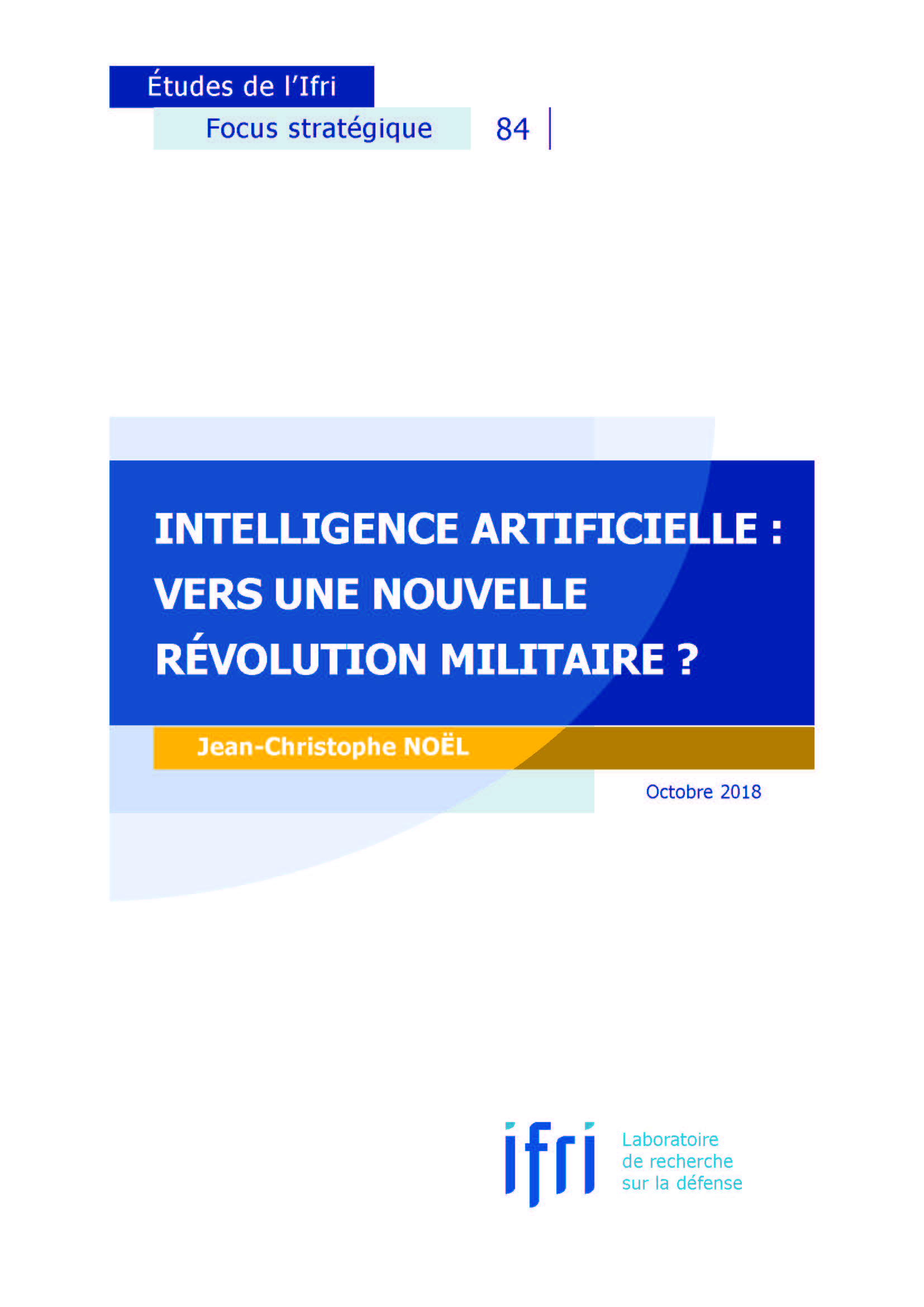Intelligence artificielle : vers une nouvelle révolution militaire ?

Artificial Intelligence (AI) is a priority defense issue for the military powers of the 21st century. Unsurprisingly, the United States and China are currently at the forefront of this new digitalized arms race.
As AI aims to emulate cognitive processes with algorithms and automated processing of big data, it is capable to undertake a growing number of specific tasks in which it surpasses human performances. In the military field, it enables a better management and simulation of the operational environment, provide threats detection, process and simplify large quantities of collected intelligence and to deliver an elementary analysis. In this light, military AI perpetuates the Revolution in Military Affairs that began in the 1990s and now appears as the main path to achieving tactical superiority. As autonomy is progressively becoming a new strategic staple, proponents of a “military humanism” underline the limits of technology, the wide span of potential counter-measures as well as the risk of a loss of control, or a dehumanization of war leading to reconsider the warrior ethos. If these evolutions prompt for a new balance in man-machine teaming, the longer term prospect of the advent of a “strong AI”, one that would be truly autonomous, could transform even more the political-military relationship, and even alter the very nature of the war.
This content is available in French: Intelligence artificielle : vers une nouvelle révolution militaire ?
Related centers and programs
Discover our other research centers and programsFind out more
Discover all our analysesMapping the MilTech War: Eight Lessons from Ukraine’s Battlefield
This report maps out the evolution of key technologies that have emerged or developed in the last 4 years of the war in Ukraine. Its goal is to derive the lessons the North Atlantic Treaty Organization (NATO) could learn to strengthen its defensive capabilities and prepare for modern war, which is large-scale and conventional in nature.
"Iron Swords" A Military Analysis of Israel's War in Gaza
On October 7, 2023, Hamas' attack, dubbed “Al-Aqsa Flood,” caused a major shock and led Israel to launch the longest war in its history. Operation “Iron Swords” was notable for its unprecedented intensity, both in terms of the massive ground forces deployed and the firepower used.
Saudi Arabia’s Nuclear Temptations. Lessons Learned from Regional Instability
Saudi Arabia’s integration in the international arena and regional stability, notably through reducing its dependence on fossil energies, are crucial elements for the success of the Kingdom’s Vision 2030, the Crown Prince’s top priority. However, Mohammed bin Salman’s declarations in 2018 and 2021, indicating that “if Iran develops a nuclear bomb, we will follow suit as soon as possible”, combined with the recent strikes on key Iranian nuclear facilities, do not bode well for the future of the Kingdom, the region and the non-proliferation regime at large.
The Future of Air Superiority. Command of the Air in High Intensity Warfare
Air superiority, understood as control of the air, is a cornerstone of the Western art of warfare. It is a decisive condition, albeit not sufficient by itself, to achieve military victory, as it enables the concentration of air power toward the achievement of wider strategic objectives and protects other components from unbearable attrition levels. It is best achieved through the offensive use of air power in a joint effort to neutralize the enemy’s air power.













